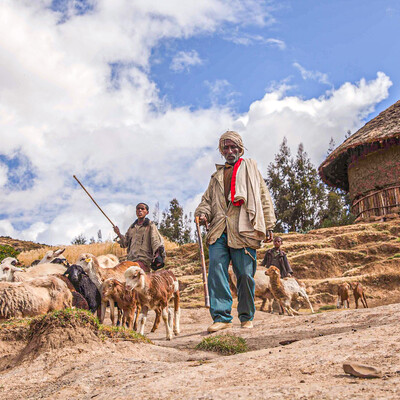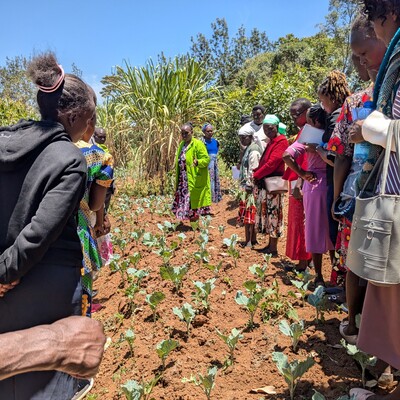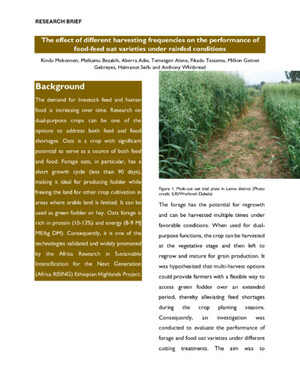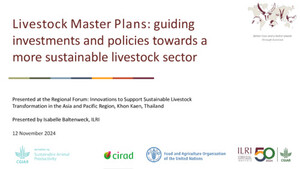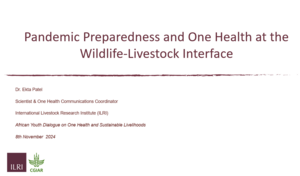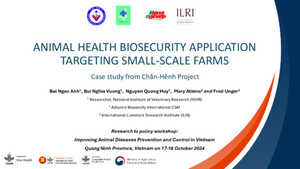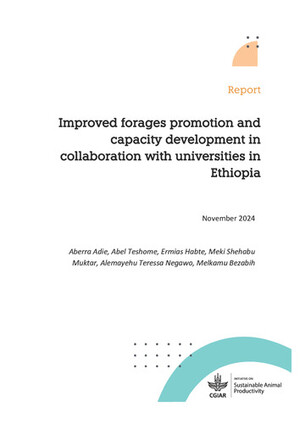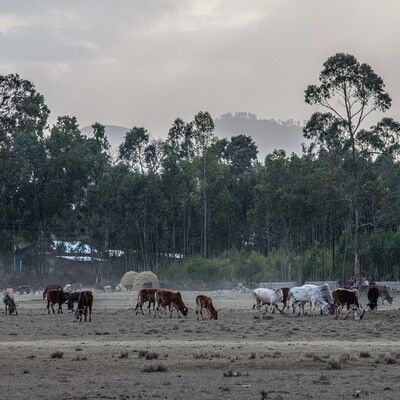
Empowering women through livestock
Research in this area documents and analyses the importance of livestock to poor women, and identifies gender-related constraints to owning livestock, accessing improved technologies and services, and participating in and benefiting from livestock value chains.
The team works with other research programmes in ILRI to ensure that projects take into account gender and integrate gender issues in their design, implementation, monitoring and evaluation. An institute wide gender task force is responsible for identifying key research areas, strategies for their implementation and opportunities for resource mobilization. The result of this research contribute to pro-poor livestock research and development agendas that empower women as an end in itself and as a means to improving welfare of their households and communities.
Research in this area documents and analyses the importance of livestock to poor women, and identifies gender-related constraints to owning livestock, accessing improved technologies and services, and participating in and benefiting from livestock value chains.
The team works with other research programmes in ILRI to ensure that projects take into account gender and integrate gender issues in their design, implementation, monitoring and evaluation. An institute wide gender task force is responsible for identifying key research areas, strategies for their implementation and opportunities for resource mobilization. The result of this research contribute to pro-poor livestock research and development agendas that empower women as an end in itself and as a means to improving welfare of their households and communities.
Gender research is critical to ILRI's mission of reducing poverty and making sustainable development possible for poor livestock keepers, their families and the communities in which they live. ILRI recognizes the important roles that women play as producers of food, managers of natural resources, income earners, and caretakers of household food and nutrition security and their specific needs, constraints and opportunities and implements projects geared to understanding and addressing these constraints and opportunities. ILRI’s research on gender includes gender analysis as a key focus of the methods used, a specific focus on women’s and men’s needs and priorities for livestock research and services, and analysis of impacts of livestock interventions on men, women and their families.
Thematic areas
ILRI research on gender and livestock focus on the following thematic areas:
- Securing women’s access to livestock assets
- Increasing access to livestock technologies and services
- Gender and livestock markets
- Integrating gender and poverty indicators in monitoring, evaluation and impact assessment
- Assessing and enhancing the impacts of livestock interventions on gender and equity
Ongoing activities and projects
- Securing women’s access to livestock assets and income:/em> The project examines the gender-mediated rights and control of livestock and livestock products across three market-oriented projects in and . An analysis of the impacts of commercialization on these rights and the role of collective action in improving rights and control by women of livestock, livestock products and income is explored. The results are expected to improve development practice and policy related to markets.
- Increasing benefits from livestock and livestock markets for women: The goal of the project is to increase the incomes and general well-being of women and their households through livestock interventions by identifying those interventions, value chains or types of livestock that have the greatest benefit to women.
- Reaching women in the East African Dairy Development project (http://www.eadairy.org/): The analysis looks at gender issues in diary marketing and service delivery to smallholder farmers and identifies strategies for addressing these.
- Livestock as a Pathway out of Poverty for Women? Evidence from R&D Interventions by ILRI and Partners: Assessing the contribution of livestock to women’s welfare, and the implications for the design and implementation of livestock R&D interventions, requires data on the current role of livestock in women’s livelihoods and the challenges and opportunities that women face with regard to acquiring, managing, and maintaining livestock. The objectives of this initiative are to take stock of the existing, albeit incomplete, evidence and synthesize lessons on how livestock interventions can help poor women in Africa and South Asia
- Getting more from livestock: the potential of collective action to improve the quality and safety of animal-source foods informally marketed by women: The goal of this research project is more wealth and better health for women, men and children involved in the production, trade, and consumption of informally marketed livestock and animal-source food (ASF). The project is characterizing women’s collective action in informal markets for livestock and animal source foods, identifying the major associated food-safety challenges, and evaluating women’s collective action for improving food safety
- Improving Productivity & Market Success (IPMS) of Ethiopian Farmers is a five-year project funded implemented by ILRI on behalf of the Ethiopian Ministry of Agriculture and Rural Development (MoARD). The project has a gender strategy which emphasises the importance of achieving equality between women and men to ensure sustainable development. The overall purpose of the strategy is to promote gender equity in market-led agricultural development opportunities as a step towards achieving gender equality.
- Women and Livestock Challenge Dialogue: The Challenge Dialogue brings together knowledgeable and influential thinkers and doers around the world to take up the challenge of fighting poverty through women and livestock. The aim is to more explicitly target efforts towards poor female livestock keepers, identifying key researchable issues and opportunities for women livestock keepers in different areas.







